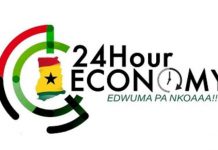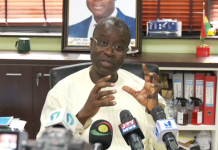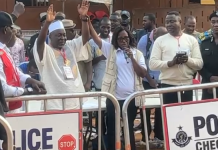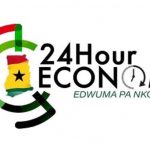The Afrobarometer report highlights that in a year marked by 23 national elections across Africa, the quality and legitimacy of these high-stakes contests will be pivotal.

According to the report, 75% of Africans believe elections are the preferred method to choose their leaders, with over six in 10 citizens supporting elections in all surveyed countries except Lesotho (44%).
“And nearly two-thirds (64%) of Africans want multiparty competition to ensure that voters have real choices in who governs them, although only one-third of Tunisians (32%) and Basotho (34%) agree,” it stated.
It further added, ‘However, there has been a concerning trend of weakening support for elections, evidenced by an 8-percentage-point decline over the past decade, which underscores challenges to democratic norms and practices.
“This may reflect some disillusionment after too many elections marred by low quality, disputes, and/or violence, or a recognition that elections by themselves don’t guarantee accountable governance or reliable public services.
Citizens’ assessment of their most recent national elections as largely free and fair is down by 7 points since 2011/2013, from 66% to 59%.
“And fewer than half of Africans think their countries’ elections ensure that members of Parliament (MPs) represent the views of voters (42%) or enable voters to remove leaders who fail to do what the people want (45%) (Figure 13).
Moreover, only four in 10 citizens (39%) say they trust their national electoral commission ‘somewhat’ or ‘a lot,’ while 57% express little or no trust.”
























































![[FREE FREE MONEY] Predict and Win a Guaranteed GH¢200 From Us EVERY WEEK](https://wordpress.ghanatalksradio.com/wp-content/uploads/2022/02/Predict-and-Win-Final-09-03-2021-218x150.jpg)
![[Predict & Win – 8th/Oct.] WIN A Guaranteed ¢200 From Us This Week](https://wordpress.ghanatalksradio.com/wp-content/uploads/2021/10/maxresdefault-16-218x150.jpg)
![[Predict & Win – 2nd] WIN A Guaranteed ¢200 From Us This Week](https://wordpress.ghanatalksradio.com/wp-content/uploads/2021/09/maxresdefault-50-218x150.jpg)
![[Predict & Win – 25th] WIN A Guaranteed ¢200 From Us This Week](https://wordpress.ghanatalksradio.com/wp-content/uploads/2021/09/maxresdefault-36-218x150.jpg)
![[Predict & Win – 18th] WIN A Guaranteed ¢200 From Us This Week](https://wordpress.ghanatalksradio.com/wp-content/uploads/2021/09/maxresdefault-23-218x150.jpg)









![[National cathedral] See full list of churches that have contributed since 2018](https://wordpress.ghanatalksradio.com/wp-content/uploads/2020/09/Ghana-National-Cathedral-GhanaTalksRadio-100x70.jpg)



